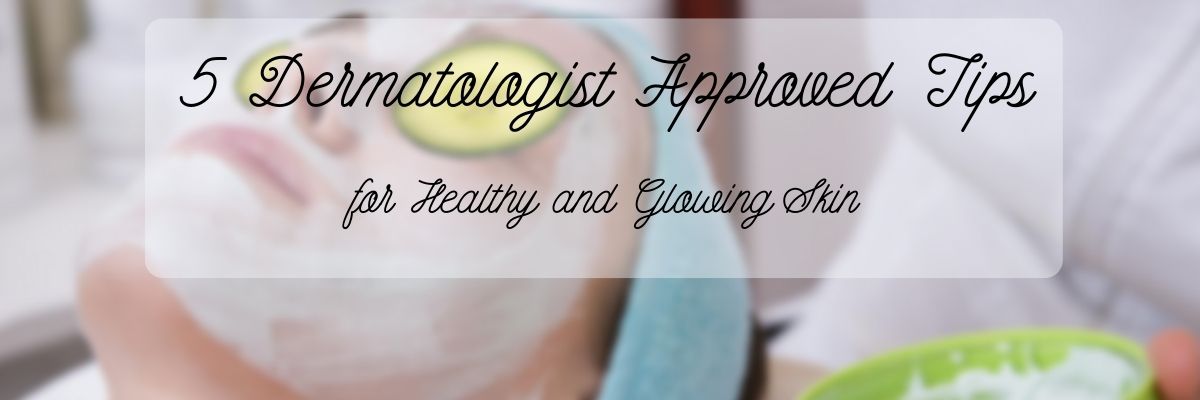Dermatologists recommend skincare products with alpha-hydroxy acids (or AHAs, as found in natural raw goats’ milk) for normal and oily skin types. Gentle polyhydroxy acids or PHAs are recommended for those with sensitive skin. People with sensitive skin should also avoid physical exfoliators characterised by harsh or abrasive materials or textures.
– Mary Quinn 29-01-2022
Dr. Tina K. Funt of the Schweiger Dermatology Group says that glowing skin is “skin that is moist and soft – not dull, dry, or flaky.” She adds that to get healthy and glowing skin, your skin must fit the following criteria: (1) small pores, (2) even complexion, and (3) unblemished, clear skin.
5 Dermatologist-Approved Tips for Healthy and Glowing Skin
Scavenging for the best tips for healthy and glowing skin? There’s no better person to ask than your friendly neighbourhood dermatologist.
Dr. Tina K. Funt of the Schweiger Dermatology Group says that glowing skin is “skin that is moist and soft – not dull, dry, or flaky.” She adds that to get healthy and glowing skin, your skin must fit the following criteria: (1) small pores, (2) even complexion, and (3) unblemished, clear skin
From getting rid of pimples to clearing clogged pores, we’ve gathered a couple of tips for you to achieve your dream skin, no matter what season it is, and how to keep it that way and nurture it.
1. Make sure you know your skin – inside and out
First off, you will need to know what skin type your skin is. Other regimens or products might not be best or appropriate for your skin type, thus possibly damaging it further rather than nurturing it.
To start you off on this getting-to-know session, there are 4 commonly known and standard skin types – dry skin, oily skin, normal skin, and combination skin. If your skin is more on the dry side, meaning the texture gets coarse or rough easily and does not excrete much oil, you will need to add a little more moisture and exfoliation to your skincare routine.
Knowing what category your skin falls under gives you a better idea of what products are more apt for your objectives. If you have that trendy organic soap in your cart, it would be best to know if it suits your skin first.
2. Drink water regularly and stay hydrated every day
This one tip helps the body holistically – even the skin. Drinking the recommended standard of 8 glasses a day boosts your overall physical health and rejuvenates your skin. If you want to achieve that skin glow, you will need to level up your diet and routine, too
3. Exfoliate regularly
Exfoliating removes dead skin cells and allows for new and smooth skin to surface. Gentle exfoliation through chemical exfoliators has been recommended by dermatologists to be better and more effective.
Dermatologists recommend skincare products with alpha hydroxy acids (or AHAs, as found in natural raw goat’s milk) for normal and oily skin types. Gentle polyhydroxy acids or PHAs are recommended for those with sensitive skin. People with sensitive skin should also avoid physical exfoliators characterized by harsh or abrasive materials or textures.
4. Adopt a balanced diet with fruits and vegetables
Like we previously said, you will need to level up your overall diet and routine if you really want to achieve healthy and glowing skin. Dermatologists recommend including a cup of green tea with chamomile extracts to your regular diet to help soothe your skin. A lot of fruits likewise increase the moisture of the skin.
5. Apply sunscreen every day
Last but definitely not the least, applying a broad spectrum sunscreen with SPF 30 or higher every day is highly recommended by dermatologists to give you added protection from skin cancer, the formation of wrinkles, and sun spots.
Sunscreen is recommended to be applied to all exposed parts of your skin so as to completely protect it. This is where adding some more safeguards comes in. Dermatologists say that aside from always putting sunscreen on, you can also wear added protective clothing and avoiding too much sun exposure.
In addition to this, dermatologists do not recommend artificial heat or sun exposure such as that which is found in tanning beds.

